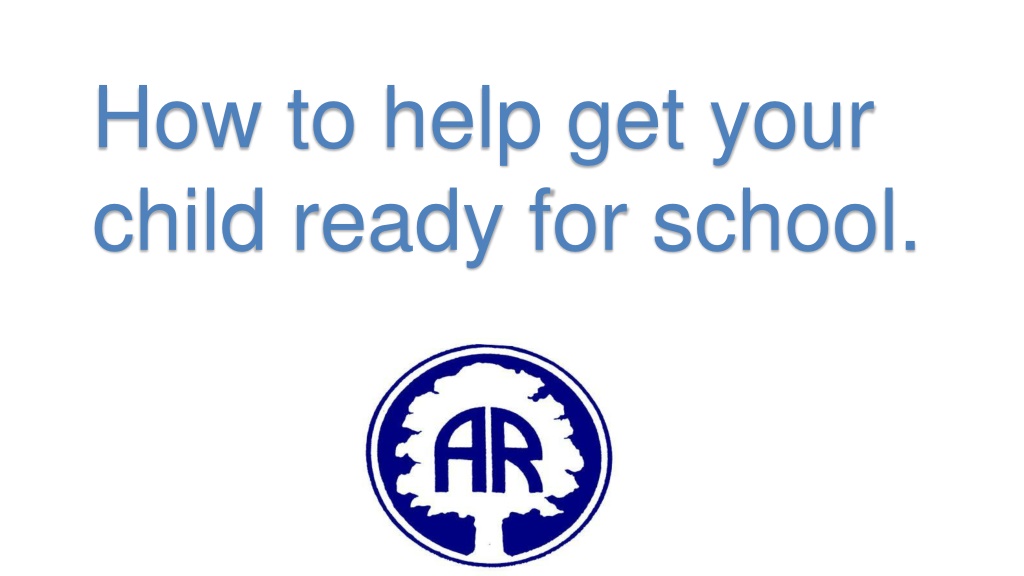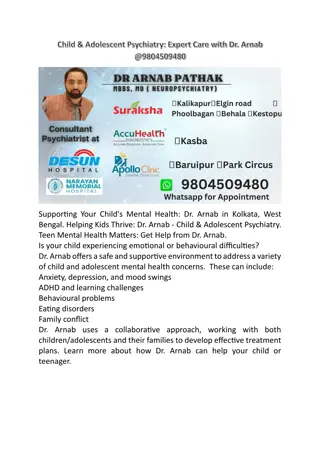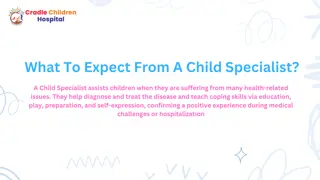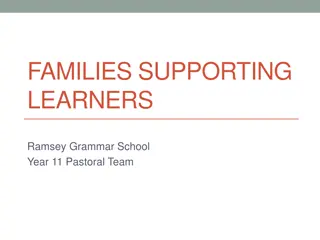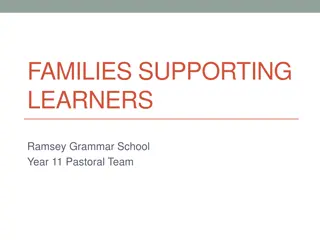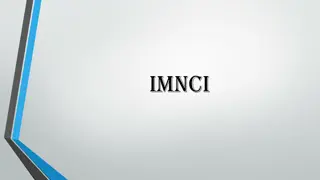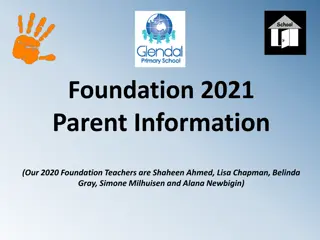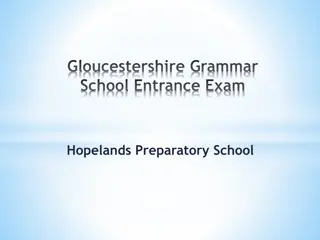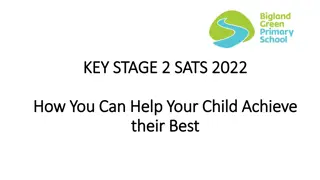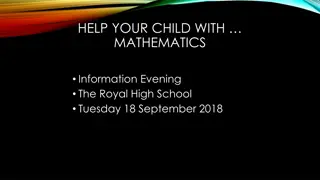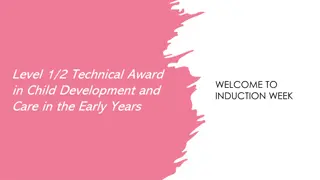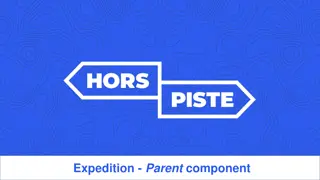Helping Your Child Prepare for School: A Comprehensive Guide
Prepare your child for school by focusing on physical readiness, emotional and social development, writing and reading skills, communication and literacy, and numeracy. Encourage independence, social interaction, fine motor skills, early literacy, and numeracy through play and activities that support their overall growth and confidence.
Download Presentation

Please find below an Image/Link to download the presentation.
The content on the website is provided AS IS for your information and personal use only. It may not be sold, licensed, or shared on other websites without obtaining consent from the author. Download presentation by click this link. If you encounter any issues during the download, it is possible that the publisher has removed the file from their server.
E N D
Presentation Transcript
How to help get your child ready for school.
Physically Ready? Independence Put on their own coat and fasten it up. Get themselves dressed and undressed. Help by buying uniform and shoes that they can manage independently. Toileting children need to be independent in this. Be able to feed themselves and use a knife and fork. Ratio of adults at school is very different to Nursery.
Emotionally and Socially Ensure that your child has been separated from you before. Make sure that your child has socialised with other children. Help them to share and take turns. Train them to tidy up and put their toys away. Encourage them to concentrate on an activity for 10-15 minutes.
Ready to write? Fine motor control- threading beads, peg boards, big tweezers to pick up pom-poms etc. Letter formation needs to be correct from the start. Lower case rather than capitals. Big actions, paint brush in water, big chalk on ground, ribbons in the air, salt on a tray.
Ready to Read? Are they tuned into sounds? Sound walks. Can they hear initial sounds in words? Objects that begin with b Nursery Rhymes and rhyming games. Do they know that print has meaning and is read left to right? When you read to your child point to the words. When ready they need to learn the letter sounds not the names. Helpful if they can recognise their name.
Communication, language and literacy Encourage role-play and small world play. Get your children to talk to you and explain what they are doing.
Numeracy Counting as you walk up steps, or as you put things away. Rote counting and careful one to one correspondence. Point out numerals in the environment, house numbers, car registration plates, prices in shops. Recognising names of shapes around them and talking about their properties.
Remember these are things that you can do to help your child be independent and increase their confidence. We are here to help your child and we will be ready for them no matter what their stage or ability. We can not wait to meet you all. See you really soon.
